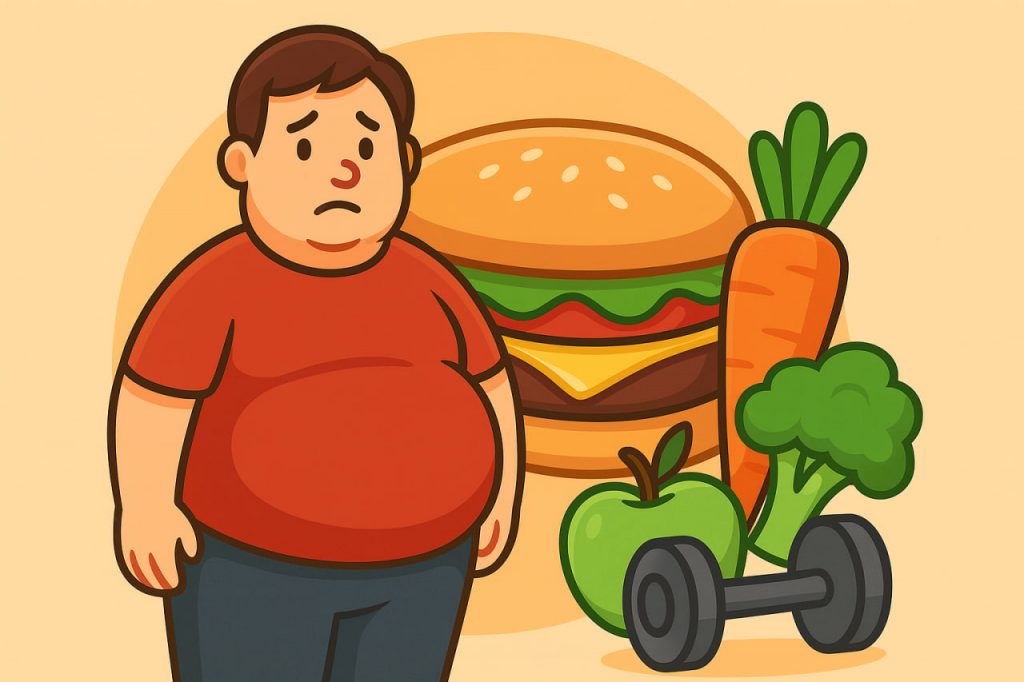Obesity is a chronic condition characterized by excessive accumulation of body fat that poses risks to health. It has become one of the most pressing global health issues, affecting millions of people worldwide. Obesity increases the likelihood of developing serious illnesses and reduces quality of life. Understanding its causes, consequences, and prevention is essential for both individuals and society.
What Causes Obesity?
Obesity usually develops when calorie intake consistently exceeds energy expenditure. However, it is not just about overeating — multiple factors contribute:
- Unhealthy diet – high consumption of fast food, sugary drinks, and processed snacks.
- Lack of physical activity – sedentary lifestyles and reduced exercise.
- Genetics – family history may increase susceptibility.
- Hormonal and metabolic factors – conditions like hypothyroidism or insulin resistance.
- Psychological influences – stress, depression, or emotional eating.
- Environment – urbanization and easy access to calorie-dense foods.
Health Risks of Obesity
Obesity significantly raises the risk of many serious health problems:
- Cardiovascular disease – high blood pressure, heart attack, and stroke.
- Type 2 diabetes – insulin resistance is common among obese individuals.
- Joint and bone issues – extra weight strains knees, hips, and spine.
- Respiratory problems – such as sleep apnea.
- Certain cancers – including breast, colon, and pancreatic cancer.
- Reduced life expectancy – due to chronic illnesses.
Social and Psychological Impacts
Beyond physical health, obesity often leads to:
- Low self-esteem and body image issues.
- Social stigma and discrimination, which can worsen mental health.
- Decreased mobility and quality of life, limiting daily activities.
Prevention and Management
Managing obesity involves lifestyle changes supported by education and, in some cases, medical guidance:
- Balanced diet – focusing on vegetables, fruits, lean proteins, and whole grains.
- Regular physical activity – at least 150 minutes of moderate exercise per week.
- Healthy eating habits – avoiding overeating, eating slowly, and portion control.
- Psychological support – counseling or group therapy for emotional eating.
- Medical supervision – in severe cases, treatment should be supervised by healthcare professionals.
Conclusion
Obesity is a complex, multifactorial condition that threatens both physical and mental health. While it is a major challenge of modern society, prevention through balanced nutrition, active lifestyles, and public health strategies can greatly reduce its impact.
Glossary
- Insulin resistance – when cells fail to respond properly to insulin, leading to high blood sugar.
- Sleep apnea – a disorder where breathing repeatedly stops during sleep.
- Processed foods – foods that are industrially altered, often high in sugar, salt, and fat.
- Body image – a person’s perception of their own body.
- Metabolic factors – biological processes that affect how the body uses energy.


